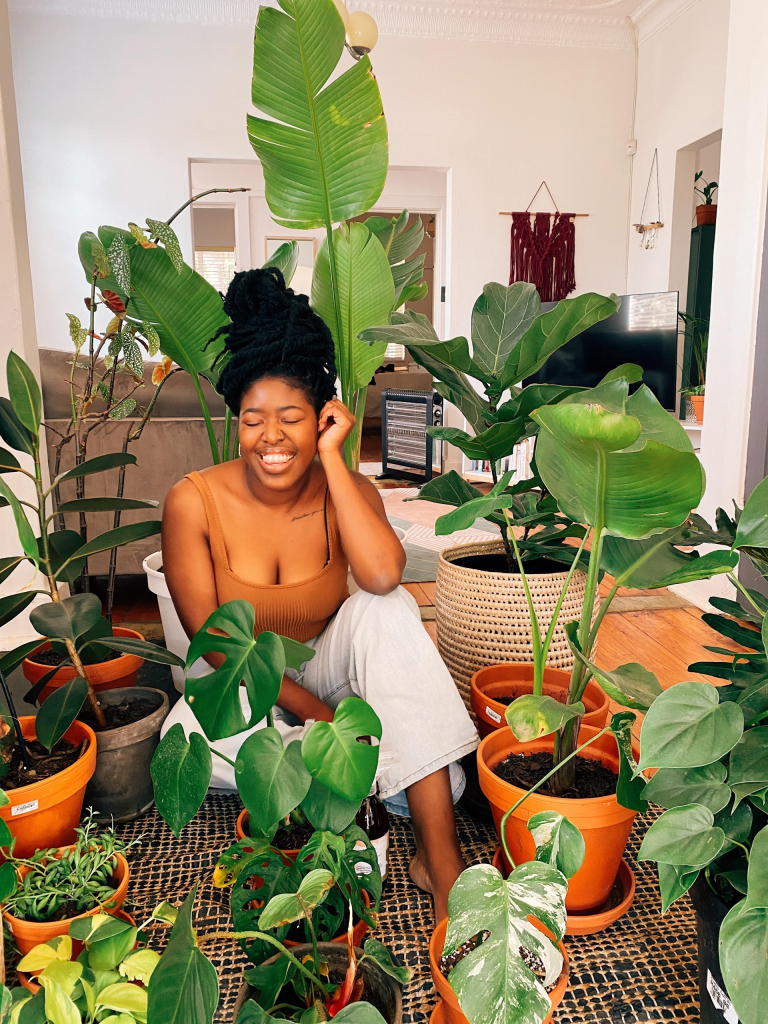There’s a new kind of family member taking root in South African homes — plants. Why are thousands of young South Africans choosing plants over pets, and in some cases even over having children? The answer reveals a lot about our mental health crisis.
In what psychologists are calling “the green shift,” South Africans are turning to plant parenting as an accessible form of therapy. With October being Mental Health Awareness Month, the trend has never been more relevant.
Keeping plants alive is the new dopamine hit
From 35-year-olds nurturing 40 plants in one-bedroom apartments to young professionals opting for low-maintenance succulents over the demands of pet ownership, a growing number of South Africans are seeking tranquillity and serenity both inside and outside their homes. For many, the stress and responsibility of caring for a dog — let alone contemplating parenthood — feels overwhelming in today’s fast-paced world.
“Plants have become a mental health solution for a generation looking to create calmer, greener spaces against the noise of city living,” says Nkhensani Rikhotso, plant stylist and founder of Her Merakai (a brand dedicated to soft rituals for green living spaces).
Meet the helicopter plant parent: Apps, WhatsApp groups & 2 a.m. leaf emergencies
Plant parents are the new helicopter parents. They have apps to track watering schedules, they’re in WhatsApp groups diagnosing leaf problems, and they’re documenting every new leaf like it’s a baby’s first steps.
The shift began during Covid-19 lockdowns when South Africans confined indoors craved connection with nature. “We couldn’t go outside, so we brought the outside in. Once people saw how much calmer, cleaner and more grounded they felt, they realised that nurturing green life nurtures self and is the simplest way to grow happiness,” says Rikhotso.
Science backs this up. Greenery in indoor spaces has been shown to reduce stress, boost productivity, and even purify the air. For those with asthma or allergies, certain plants like peace lilies and snake plants can make a big difference to air quality.
From R35 succulents to R5 000 rare plants: An affordable trend with no age limit
Once considered a hobby for those with sprawling gardens, plant care has become accessible to everyone, and South Africans living in townships, suburbs and cities are all adopting the trend: from 21-year-olds decorating student flats with succulents to professionals styling high-end apartments with statement ferns and fiddle-leaf figs.
“I get messages from varsity students asking what plant is best for their desk, and I’ve got clients in their forties building full indoor gardens. It’s truly across the board,” says Rikhotso.The Houghton Bonsai, Succulent and Plant Show, taking place at Killarney Mall in Johannesburg from 7 to 9 November 2025, reflects this multi-generational obsession. The event offers plant lovers the chance to explore a wide range of bonsais, succulents, and rare species while learning from experts about propagation, plant care and styling through interactive workshops and demonstrations.
Beyond aesthetics, caring for plants has become a form of mindfulness and self-care. “When I water my plants on a Saturday, that’s my quiet time. It forces me to slow down and be present. I can even tell when I’m not in a good headspace — my plants reflect that. They droop when I do,” says Rikhotso.
“Whether it’s a single succulent on a windowsill or a full-blown jungle of Monsteras and philodendrons, the rise of plant parenting shows no signs of slowing down,” she adds. “And it’s not just plant moms anymore. Plant dads and many others are proudly joining the movement too.”
Committed to bringing plant lovers, lifestyle events, and community experiences to Johannesburg, Killarney Mall continues to create a space where creativity, nature and local connection thrive. Best of all, entrance to The Houghton Bonsai, Succulent & Plant Show is FREE.
Visit https://killarneymall.co.za/event/the-houghton-bonsai-succulent-and-plant-show to find out more.







